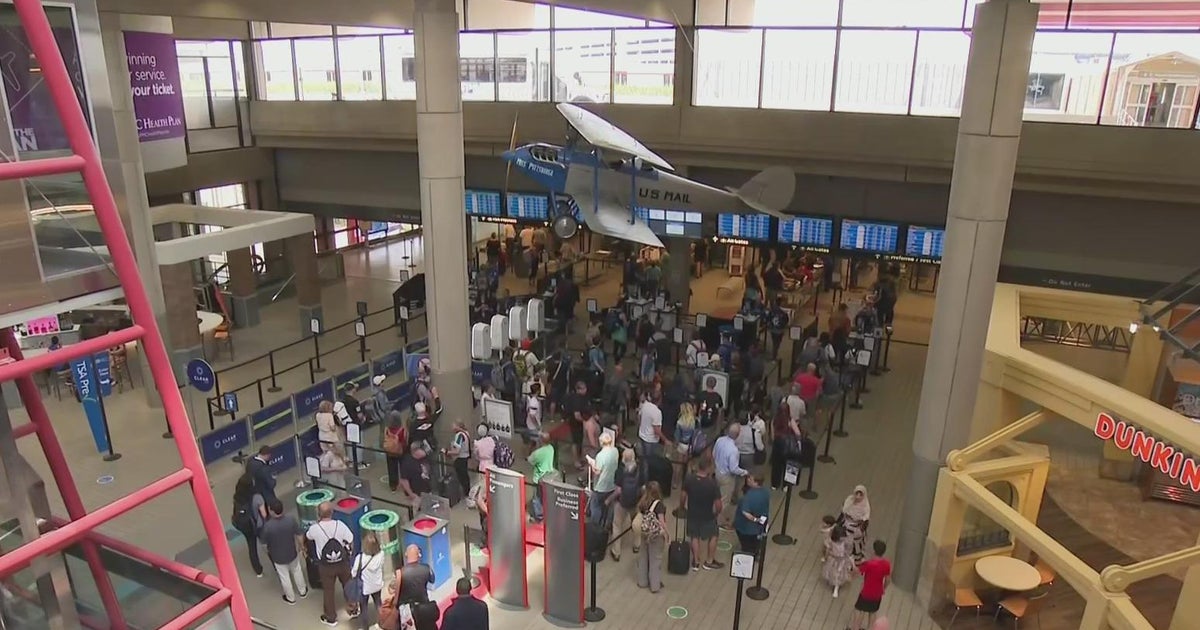Pittsburgh animal rescuers raise questions about city's proposed spay/neuter program
PITTSBURGH (KDKA) — Pittsburgh City Council members are making moves to approve $210,000 for a three-year agreement with an animal shelter to bring back the city's spay and neuter program for neighborhood cats and family pets.
Pittsburgh City Council gave preliminary approval on Wednesday and will take a final vote next week to provide free spaying and neutering services with a few tweaks. However, people who trap, neuter and release community cats in city neighborhoods are scratching their heads because they're unhappy with some of the changes.
"It's just too great of a risk for a lot of us, honestly. We don't do this for any reason other than we love them," said Lydia Swanson, founder and CEO of Oakland TNR Coalition.
Swanson started Oakland TNR Coalition in 2019. Since then, her non-profit organization has trapped and helped nearly 1,000 street kitties.
If the updated program is approved, the number of spay/neuter vouchers for feral felines will go up from five to 30, and residents can get two vouchers for pet cats or dogs. There is an income requirement only for dogs.
Swanson said there are major barriers though. One is that you have to live in the city.
"Our rescue and the majority of our foster homes are still within the city, and pretty much every cat we get comes from within the city limits," she said.
Another is that you can only bring the animals to Humane Animal Rescue of Pittsburgh for the surgeries. Swanson said a lot of rescues don't utilize HARP's services because you have to sign a waiver, giving control of medical decisions.
"In the past, we have seen cats be euthanized for things that are definitely treatable. No one wants to risk a cat that they have put all this effort into catching potentially being euthanized. Technically you give consent but, you know, without some sort of say to at least give them the chance to treat the cat," Swanson said.
Dr. Ariella Samson, a veterinarian and HARP's executive director, said the organization does not make money on this program. She said it does it because it wants to keep the stray cat population down. She said HARP does what's in the animal's best interest.
"What we do is at the time that the cats are anesthetized, they get a full head-to-toe exam. If we find things that are making the cat suffer, that are affecting quality of life, that have a very poor prognosis, or are going to make it so that the cat is unable to be put back outside, and is not an adoption candidate, or a rescue candidate — we make a very difficult decision. But that is to humanely euthanize them," Samson said.
"And the conditions we're talking about are not things like ear infections or fleas or skin infections. It's usually things like they require a full mouth dental with full mouth extractions," Samson added.
Swanson spoke with KDKA's Jessica Guay from outside a vet office while a feral cat she trapped was getting dental care. She said he's very happy now and may not want to go back outside.
She said the program used to allow people to take the vouchers to Animal Friends as well, and it would usually give people the option to euthanize or treat a very sick or injured cat. She said they never release ones that get care until they're better.
While HARP was the only one to put in a bid, Swanson thinks more clinics would've put in a bid if they knew the city was looking.
"Just that fear and the possibility of an animal that you put so much effort into just not getting that second chance that they deserve. We want to give them that chance first, even if they're feral. If you do it for your personal cat, why wouldn't you also do it for a feral cat?" Swanson said.
Pittsburgh Councilman Anthony Coghill said the new city resident requirement came about because people were taking advantage of the program, which led to the suspension in February. It later restarted but with limited vouchers for community cats.
Coghill told KDKA-TV that the council will hold the final vote on the updated spay/neuter program next Tuesday.




